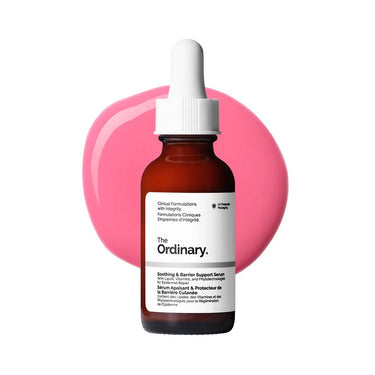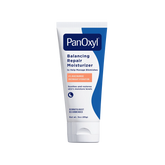The Complete Guide to Building Your Skincare Routine: Why Serums Are Your Skin's Best Friend
Let's be honest—walking down the skincare aisle can feel like navigating a maze blindfolded. With thousands of products promising miraculous transformations, it's easy to feel overwhelmed and end up with a bathroom cabinet full of half-used bottles that didn't deliver the results you hoped for.
If you've ever stood in front of your mirror wondering why your skin isn't glowing despite your 10-step routine, or if you're a skincare newbie feeling completely lost, this guide is for you. Today, we're diving deep into the world of serums and why they might be the missing piece in your skincare puzzle.
What Exactly Are Serums (And Why Should You Care)?
Think of serums as the superheroes of skincare. While moisturizers are like a comfortable blanket for your skin, serums are precision tools designed to target specific concerns with concentrated active ingredients.
"I used to think serums were just expensive water," admits Emma, a 29-year-old teacher from Portland. "But once I understood what they actually do, my skin completely transformed. I went from hiding behind foundation to feeling confident going makeup-free to work."
Serums have a lightweight, fast-absorbing formula that allows active ingredients to penetrate deeper into your skin than thicker creams or lotions. This means you get more bang for your buck—and more importantly, better results.
The Science Behind Serums
Your skin has a natural barrier that protects against environmental damage, but it can also prevent beneficial ingredients from getting where they need to go. Serums are formulated with smaller molecules that can slip past this barrier and deliver potent ingredients directly to your skin cells.
The key is in the concentration. While a moisturizer might contain 1-2% of an active ingredient, serums can contain 10-20% or even higher concentrations, making them significantly more effective for targeting specific concerns.
Choosing the Right Serum for Your Skin Concerns
Not all serums are created equal, and using the wrong one for your skin type can actually make problems worse. Here's how to choose wisely:
For Anti-Aging and Fine Lines: Retinol and Vitamin C Serums
If you're starting to notice fine lines around your eyes or loss of firmness, these powerhouse ingredients should be your go-to. Vitamin C serums work during the day to protect against environmental damage and boost collagen production, while retinol serums work overnight to accelerate cell turnover and smooth existing lines.
"I started using a vitamin C serum at 25 as prevention," shares Dr. Jennifer Walsh, a dermatologist with 15 years of experience. "The patients I see who start early with quality serums consistently have better skin outcomes in their 40s and 50s."
For Hydration: Hyaluronic Acid Serums
Despite its intimidating name, hyaluronic acid is actually your skin's best friend. This incredible molecule can hold up to 1,000 times its weight in water, making it the ultimate hydration booster.
"My skin was so dehydrated that even rich moisturizers weren't helping," explains Maria, a 34-year-old working mom. "Adding a hyaluronic acid serum underneath my moisturizer was like giving my skin a tall drink of water. The plumpness and glow came back within days."
For Acne and Blemishes: Niacinamide and Salicylic Acid Serums
If you're dealing with breakouts, enlarged pores, or excess oil, look for serums containing niacinamide (vitamin B3) or salicylic acid. These ingredients work to regulate oil production, minimize pores, and prevent future breakouts without over-drying your skin.
How to Layer Serums Like a Pro
One of the biggest mistakes people make is applying serums in the wrong order or using too many at once. Here's the foolproof method that actually works:
Morning Routine:
- Cleanser
- Vitamin C serum (wait 5-10 minutes)
- Hyaluronic acid serum
- Moisturizer
- SPF (non-negotiable!)
Evening Routine:
- Double cleanse (oil cleanser first, then water-based)
- Treatment serum (retinol, niacinamide, etc.)
- Hydrating serum if needed
- Night moisturizer
The golden rule? Always apply serums from thinnest to thickest consistency, and never mix retinol with vitamin C or AHA/BHA acids in the same routine.
Real Results: What to Expect and When
Let's set realistic expectations. Skincare isn't magic—it's science, and science takes time.
Week 1-2: Your skin adjusts to new products. You might experience slight irritation or purging, especially with active ingredients like retinol.
Week 3-4: Hydration improves, and your skin starts feeling smoother and more balanced.
Month 2-3: This is where the magic happens. Fine lines start softening, dark spots begin fading, and your overall skin texture improves.
Month 6+: Long-term benefits become apparent. Your skin is more resilient, even-toned, and genuinely healthier.
"Patience was the hardest part," admits Jessica, who struggled with adult acne. "I wanted results overnight, but once I committed to a consistent routine with the right serums, my skin completely transformed over six months."
Common Serum Mistakes That Sabotage Results
Mistake #1: Using too much product. More isn't better with serums. 2-3 drops is usually enough for your entire face.
Mistake #2: Skipping patch tests. Always test new serums on a small area first, especially if you have sensitive skin.
Mistake #3: Inconsistent use. Using a serum once or twice a week won't give you results. Consistency is key.
Mistake #4: Not wearing SPF. Many active ingredients make your skin more photosensitive. Skipping sunscreen will undo all your hard work.
Building Your Perfect Serum Collection on a Budget
You don't need to spend hundreds of dollars to get great results. Start with one or two serums that target your main concerns, then gradually add others as your skin adjusts and your budget allows.
Beginner's essentials:
- A good vitamin C serum for morning use ($25-50)
- A hyaluronic acid serum for hydration ($15-35)
- A gentle retinol serum for evening use ($30-60)
"I built my routine slowly over six months," says Rachel, a college student. "Instead of buying everything at once, I added one new product each month. It was easier on my wallet and my skin."
The Bottom Line
Serums aren't just another skincare trend—they're concentrated treatments that can genuinely transform your skin when used correctly. The key is choosing the right products for your specific concerns, being patient with the process, and maintaining consistency.
Remember, great skin isn't built in a day, but with the right serums and realistic expectations, you can achieve the healthy, glowing complexion you've always wanted.
Ready to start your serum journey? Browse our curated collection of dermatologist-approved serums, each selected for their proven ingredients and real-world results.















